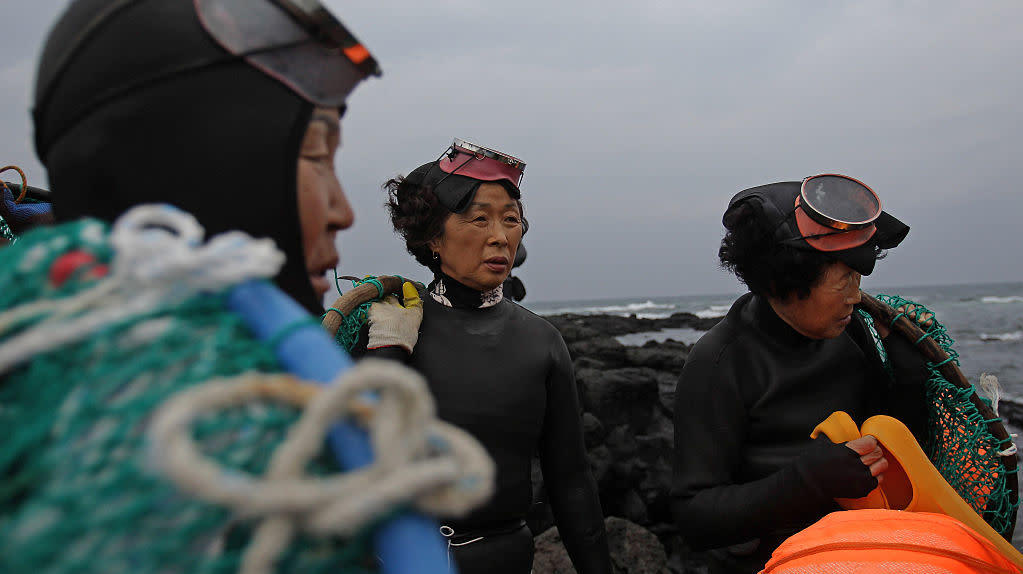Keeping The Tradition Of South Korean Female Diver Songs Alive
Jeju Island is the largest island in South Korea. It's a gorgeous tourist destination (why, coronavirus, why). But it's also home to old traditions that are unlike any in South Korea—like haenyeo, female divers that comb the sea for abalone, sea urchin, conch, seaweed, octopus, and clams. Atlas Obscura has a fascinating article that describes haenyeo traditions and how the women are trying to preserve a skilled trade that's quickly dwindling away.
The women dive in wetsuits but with no breathing apparatus: they use a specialized breathing technique called sumbisori. It's a job fraught with peril as these women free-dive to depths of up to 32 feet underwater to harvest what they can from the ocean floor. The tradition harkens all the way back to the 17th century, when it's believed that women stepped into provider roles due to a lack of men, who were likely either at war or out to sea. Most haenyeo are elderly as younger generations hesitate to take on such a dangerous trade.
For a long time, the job was looked down upon, as gender roles typically dictated that women stay home and raise children rather than go out and work in the tumultuous water of the ocean. Jeju Island's soil is volcanic and doesn't support agriculture, so farming is out of the question. In 2016, UNESCO included haenyeo on its Representative List of the Intangible Culture Heritage of Humanity, and now they play quite the role in Jeju Island's tourist industry.
Jeju's restaurants often align themselves with haenyeo as the women provide not only ingredients, but a sense of cultural pride. You'll often see their harvest on the menu with dishes like jeonbokjuk, a porridge of rice and abalone.
Music is a part of the haenyeo tradition, and the women often sang songs in their boats as they traveled to remote locations. They sang in 6/8 time to match the rhythm of the sea, and lyrics are poetic and reflect a strong will to survive, ranging from lamentations to complaints about their husbands and even protest songs against the government. The traditions of song are at risk of disappearing, and there's a tension between musicians who move to modernize the music and the haenyeo, who wish to keep things as they are. So if you have some time today, it's a great article to read through to get some insight into a tradition that goes back centuries.
